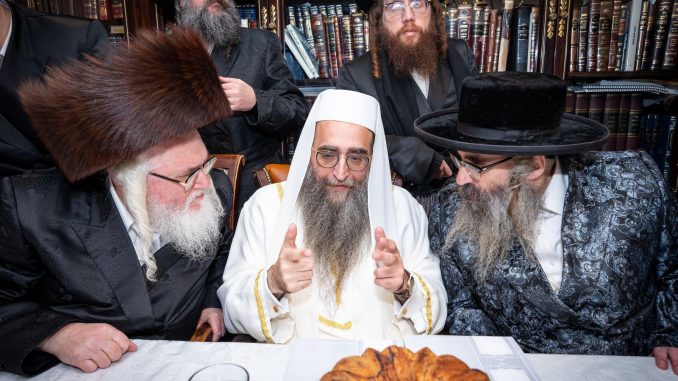
Rabbi Yoshiyahu Yosef Pinto, together with his son Rabbi Yoel Moshe Pinto, celebrated the menorah lighting ceremony on Wednesday evening This was the fourth night of the Hanukkah holiday, and was attended by a large number of followers, congregants, rabbis and dignitaries All of whom came to Beth Israel Synagogue in Muncy, New York, to participate in the celebration.
At the beginning, the participants, accompanied by the Hasidic band, musicians and instrumentalists, sang many songs and hymns interpreted from abroad, which sing the great miracle that occurred during the eight days of Hanukkah, before the candles were lit, and then Rabbi Pinto gave a moral lesson and on the sanctity of the days of Hanukkah and their impact on the Jewish person throughout the year.
Rabbi Pinto blessed the many people and followers who lined up by the thousands to receive his satisfaction and blessing, and to receive the “hyssop”, which protects its bearer and gives him superiority and success.
The celebrations in Muncie, which had the honor of hosting Rabbi Pinto for the third time, after last year’s Purim and Hanukkah celebrations, were attended by many well-known rabbis, including Berdytchiv, weladnik, Kamada, Spinka and rebutzich, who were admirers of Rabbi Pinto’s personality and wished to receive his blessings.
Rabbi Pinto has been leading the “Shuva Israel” organization for almost thirty years now. He runs 87 religious schools in Israel and abroad. He has more than 100 books in which he speaks about his visionary religious vision and gives his teachings to his followers, which are also broadcast on social networks and websites, which attract millions of views and followers.
The lessons of Rabbi Pinto, who developed a new and special philosophy based on the fusion of the teachings of the Torah, the principles of Hasidism and the ideas of the righteous elders of the Abu-Matira and Pinto dynasties, from which millions are descended around the world, are drawn from all denominations and communities, including the ultra-Orthodox, secular, traditional, Hasidic, Lithuanian, Sephardic and National Religious Camp followers.

Be the first to comment